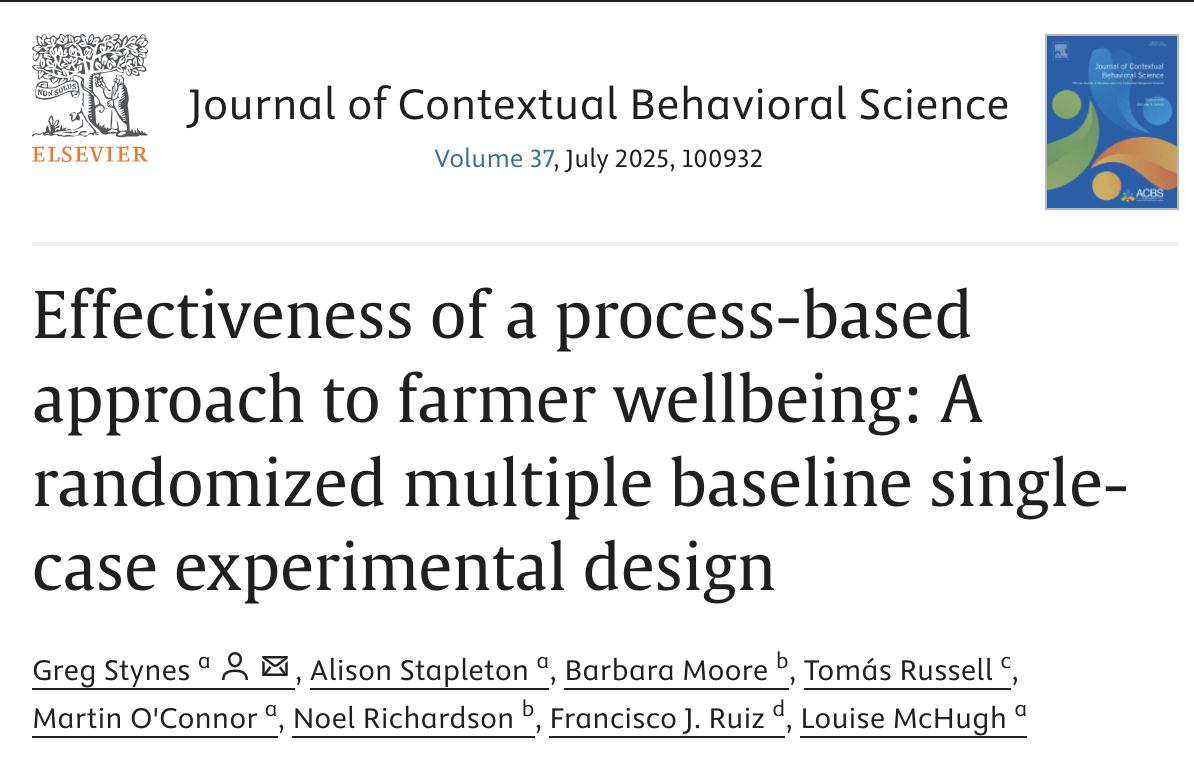Journal of Contextual Behavioral Science (JCBS)
Volume 37, July 2025
Authors
Greg Stynes, Alison Stapleton, Barbara Moore, Tomás Russell, Martin O'Connor, Noel Richardson, Francisco J. Ruiz, & Louise McHugh
Key Findings
- Significantly improved psychological flexibility for 4/6 farmers after online ACT.
- Depression and shame improved for 4/6 & 3/6 farmers, respectively (3-month followup).
- No observed impact on stress. Significant increase in reported burnout for 5/6 farmers.
- Processes of change, distress, vitality, and life satisfaction improved for 3/6 farmers.
- ACT for farmers likely requires flexibility in scheduling and delivery options.
Abstract
Among farmers, mental health and suicide are noted concerns in the literature. Practical barriers, stigma and shame may impede engagement with support. Acceptance and Commitment Therapy offers a means of providing support to those experiencing mental health concerns. An evaluation of a six-session, online, individually facilitated intervention with six Irish farmers (age 39–69 years) was completed using a randomized, concurrent, multiple-baseline, single-case experimental design. Additional data on various mental health variables were gathered pre-intervention, post-intervention, and at three-month follow-up. Tau-U results based on responses (84 days) were significant for psychological flexibility for three participants and for stress for one participant. Between-case standardized mean difference suggested a significant, large increase for psychological flexibility and no significant change for stress. At least three participants made reliable improvements in depression, psychological flexibility, and internal shame, with percentage improvements in positive and negative processes of change, distress, vitality, and life satisfaction. Most individuals showed no improvements for stress, anxiety, or subjective wellbeing. Burnout increased over time. While the results of the evaluation are mixed, full attendance at sessions supports the feasibility of the intervention. Recommendations for future interventions and research are outlined.
